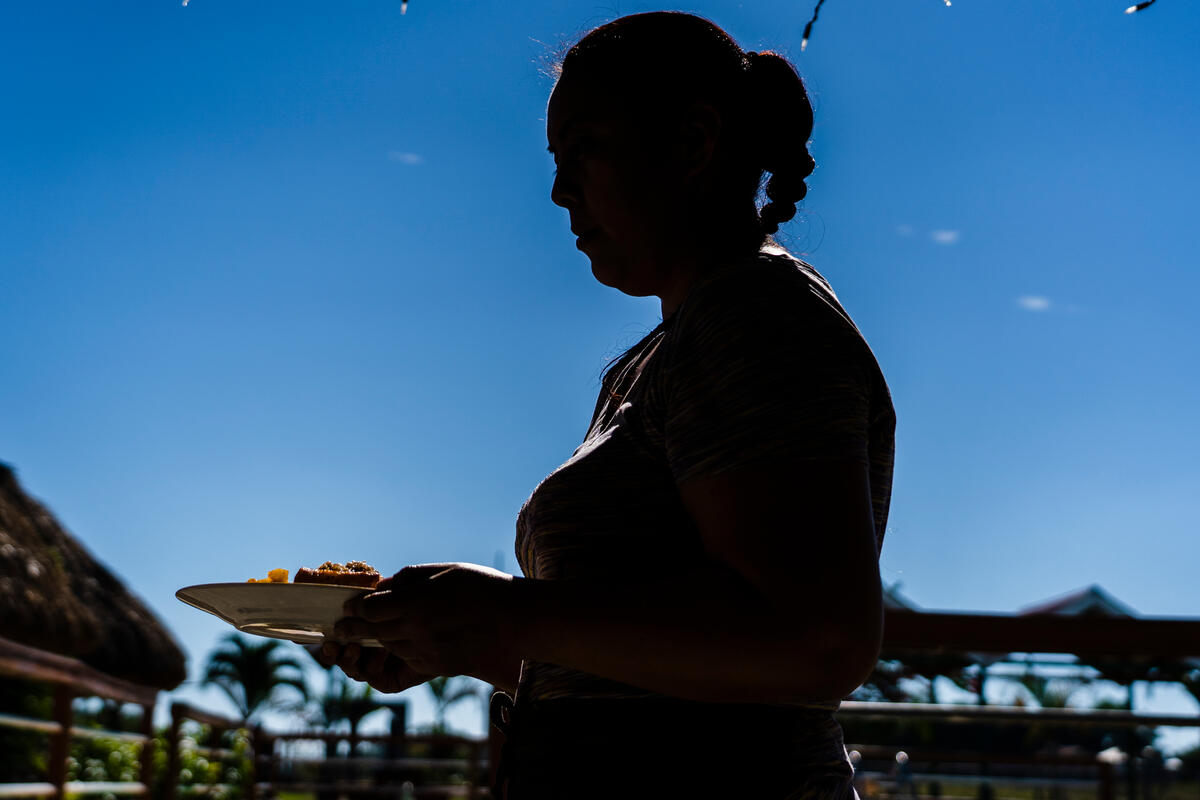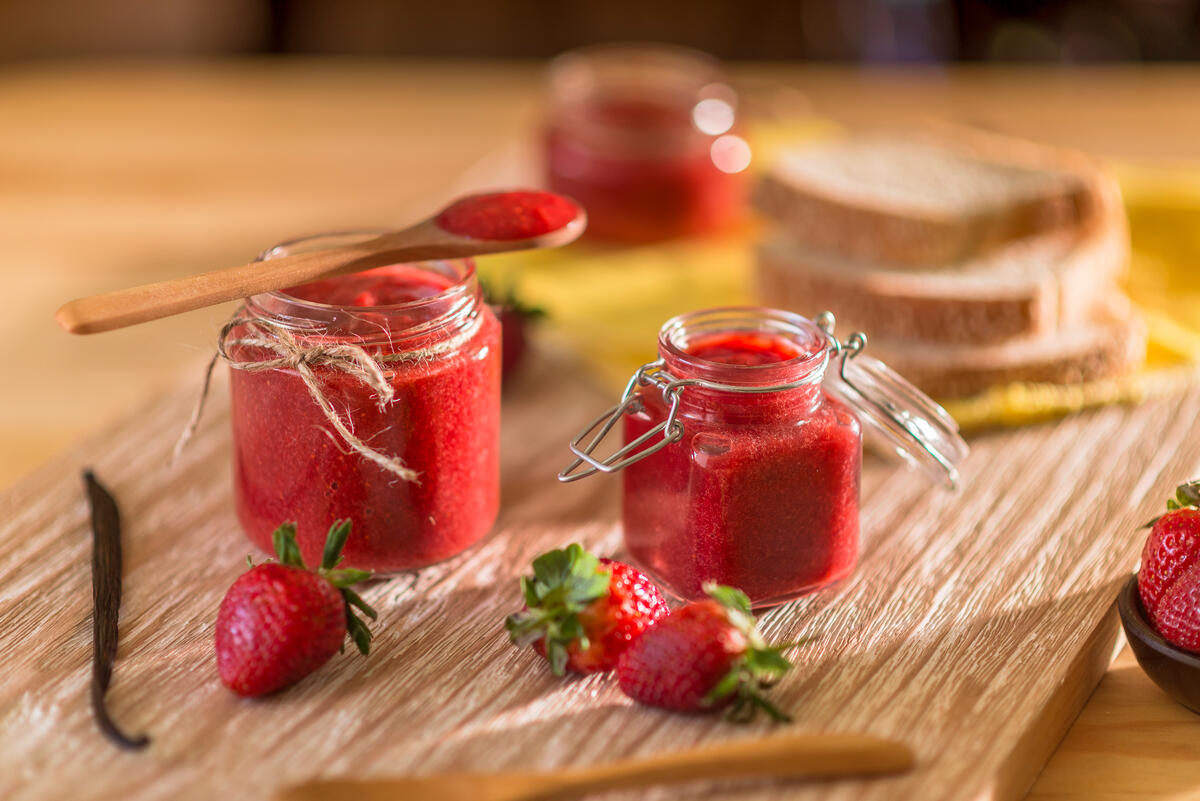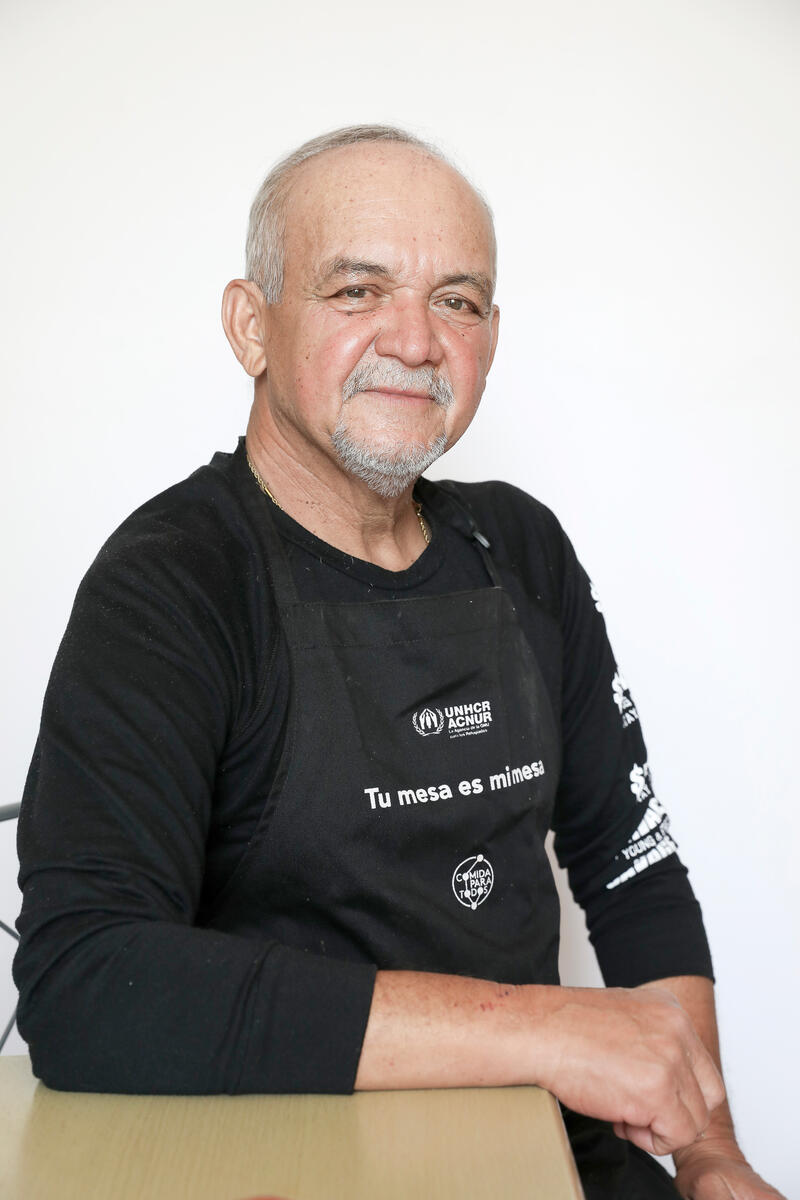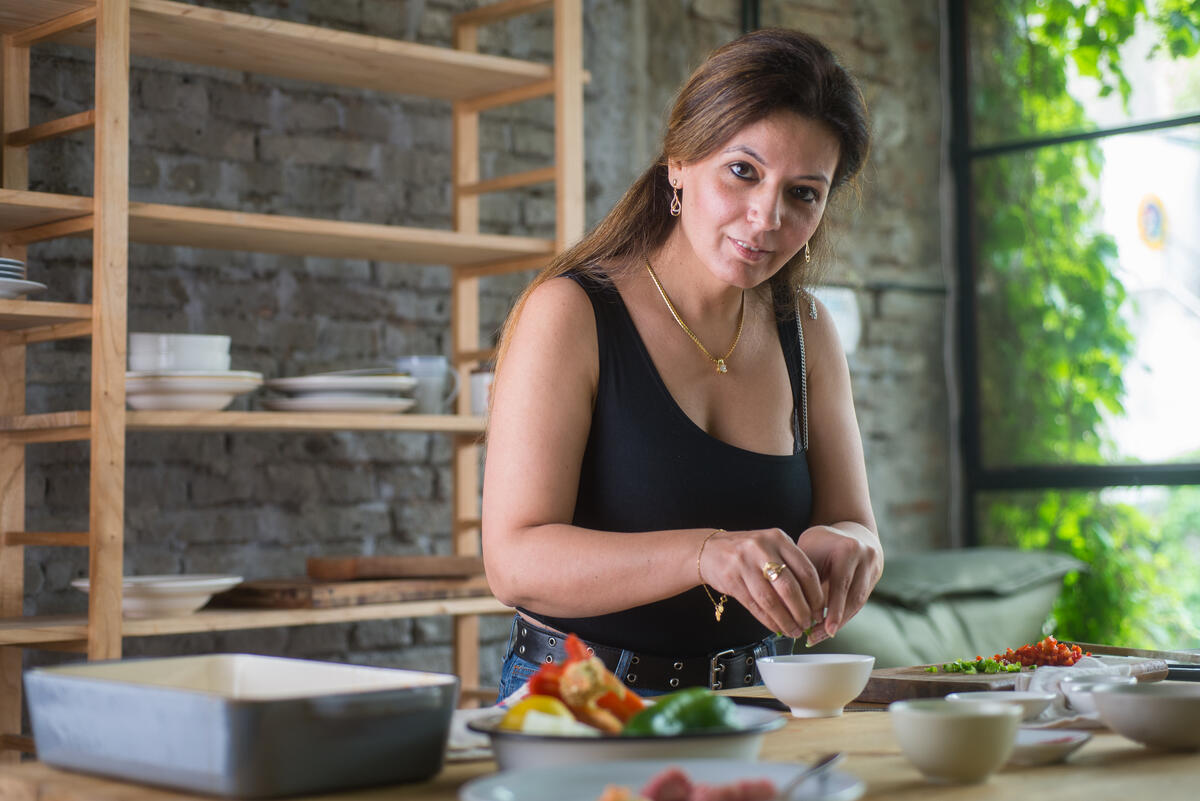For many displaced people in Latin America, new lives start in the kitchen
For Natasha*, cooking has always been a favourite hobby. But that pastime became her livelihood after she was forced to flee her native El Salvador to Belize, following threats from gang members.
Natasha, 39, had learned to cook as a child, alongside her mother. She later continued the tradition with her own daughter and the two spent long afternoons together in the kitchen of their home in El Salvador. But all that ended abruptly three years ago.
“Gang members harassed me and my daughter… They wanted [her] to join,” Natasha explains, adding that the gang resorted to a variety of different ways of terrorizing them, “even walk[ing] on our roof to scare us.”
Mother and daughter lived in a constant state of fear until gang members kidnapped and killed the daughter of a close friend. It was then that Natasha knew she and her daughter had no choice but to leave their country. They fled with little more than what they could carry in a backpack.
“I've been fortunate to have found friends here who have taught me Belizean recipes.”
In Belize, Natasha struggled to find work and decided to put to use the culinary skills she had learned alongside her mother and start cooking for a living. Thanks to the generosity of a friend, who allows her access to a restaurant kitchen, Natasha now prepares food that she sells on the side of the highway.
“I've been fortunate to have found many friends here who have taught me Belizean recipes,” says Natasha, who is hoping that she and her daughter, now 16, will soon be recognized as refugees in Belize.
Her recipe - for chicken with rice and beans - can be found in From Our Table to Yours: Fusion Cooking, a new cookbook published by UNHCR, the UN Refugee Agency, that features recipes from 14 displaced people and is available for free download.
Each recipe in the book combines flavours from displaced people’s countries of origin and their new homes. Natasha’s dish combines typically Belizean rice and beans with the seasoned chicken and vegetables eaten in El Salvador.
Food can be a powerful tool for integration, as it was for Natasha, but for many people who have had to flee, food is also a constant concern. According to a recent survey by UNHCR, 48 per cent of refugees in the Americas reported eating only twice a day, while 6 per cent said they were able to eat only one meal a day.
It was hunger, as well as difficulties in accessing much-needed medicine, that pushed Alfredo, a 68-year-old retired teacher, to leave Venezuela. When his monthly pension was no longer enough to cover even his most basic food needs, he set out for Chile, where his daughter and grandchildren had been living for several years.
“When I was a child and they cooked this dish in my house, it made me happy.”
But in the Chilean capital, Santiago, he found it difficult to find a steady job.
“For many months, I knocked on many doors but there was always some reason not to hire me,” he recalls. “Because I wasn't young, because I didn't have the right visa, because they believed I didn’t have the strength, and many other reasons. It was very frustrating.”
The outbreak of COVID-19 only made the situation worse. But in the midst of the pandemic, he heard that the local parish was looking for volunteers for a soup kitchen, to help prepare hot meals for those in need. He began to volunteer, learning to make many Chilean dishes, as well as serving up Venezuelan ones.
In From Our Table to Yours, Alfredo shares the recipe for Pabellón Criollo, a traditional Venezuelan dish which combines spring onion, cilantro, red pepper, and plantain.
“This dish has so many meanings for me,” he explains, as he cuts, whisks, and fires off jokes in the kitchen. “When I was a child and they cooked this dish in my house, it made me happy. Today I smell it and I remember that happiness.”
*Name changed for protection reasons.














